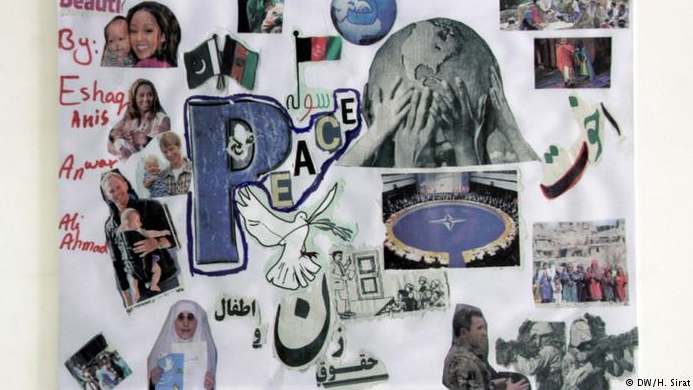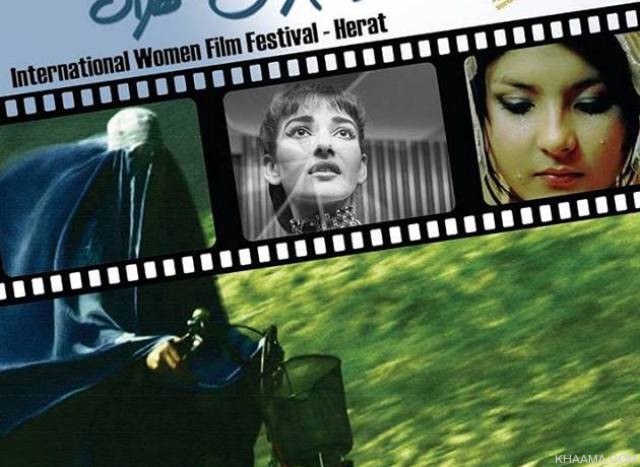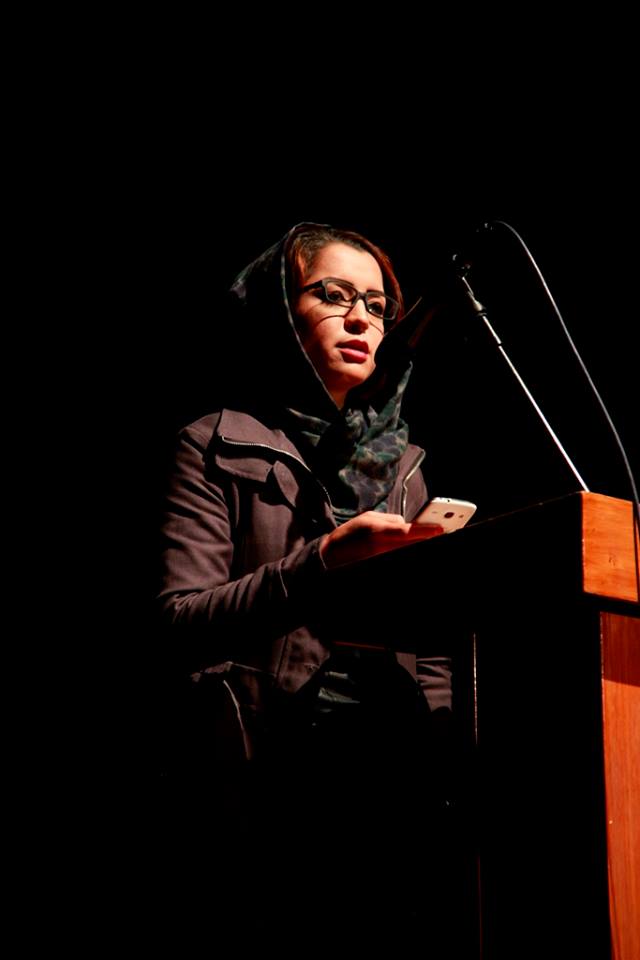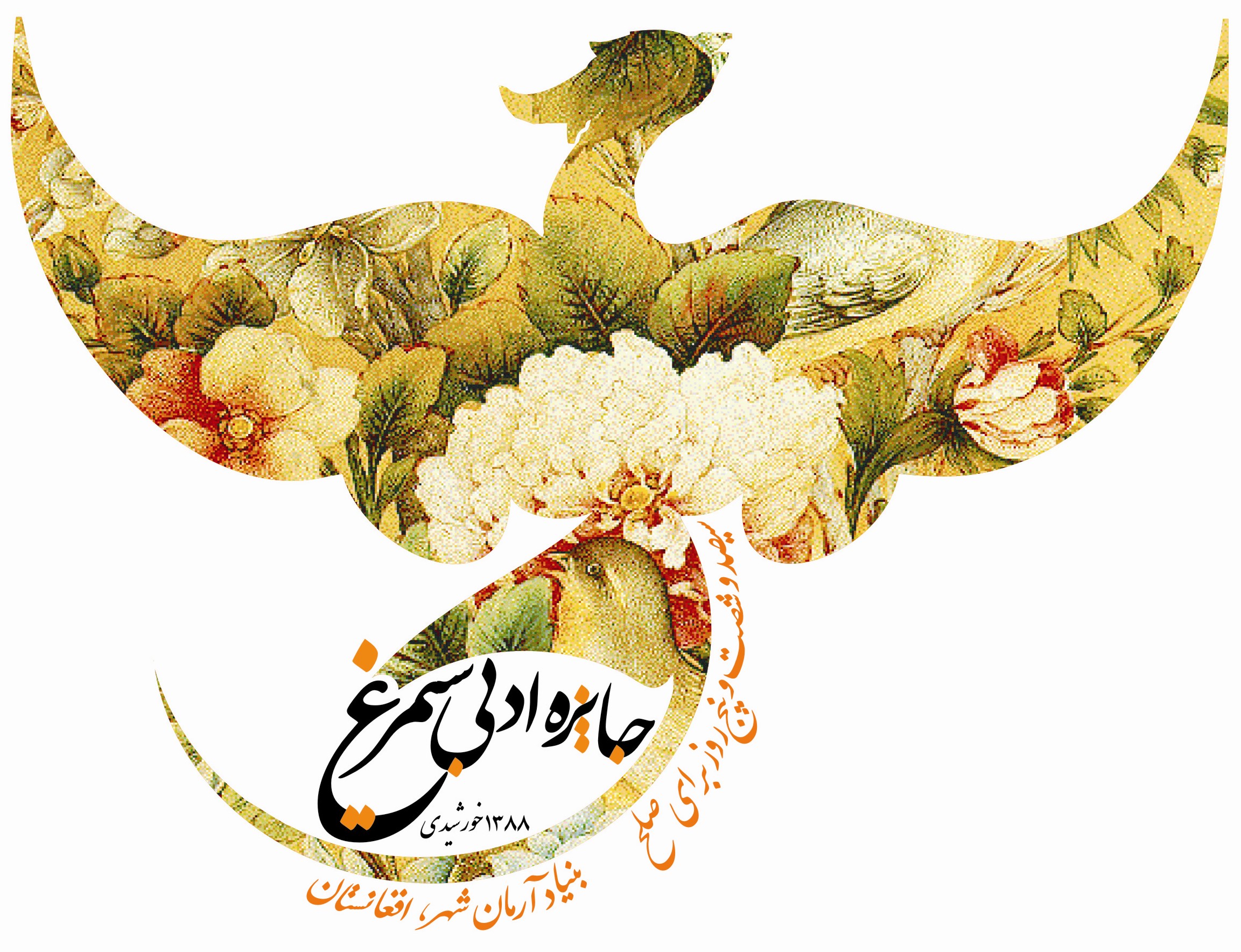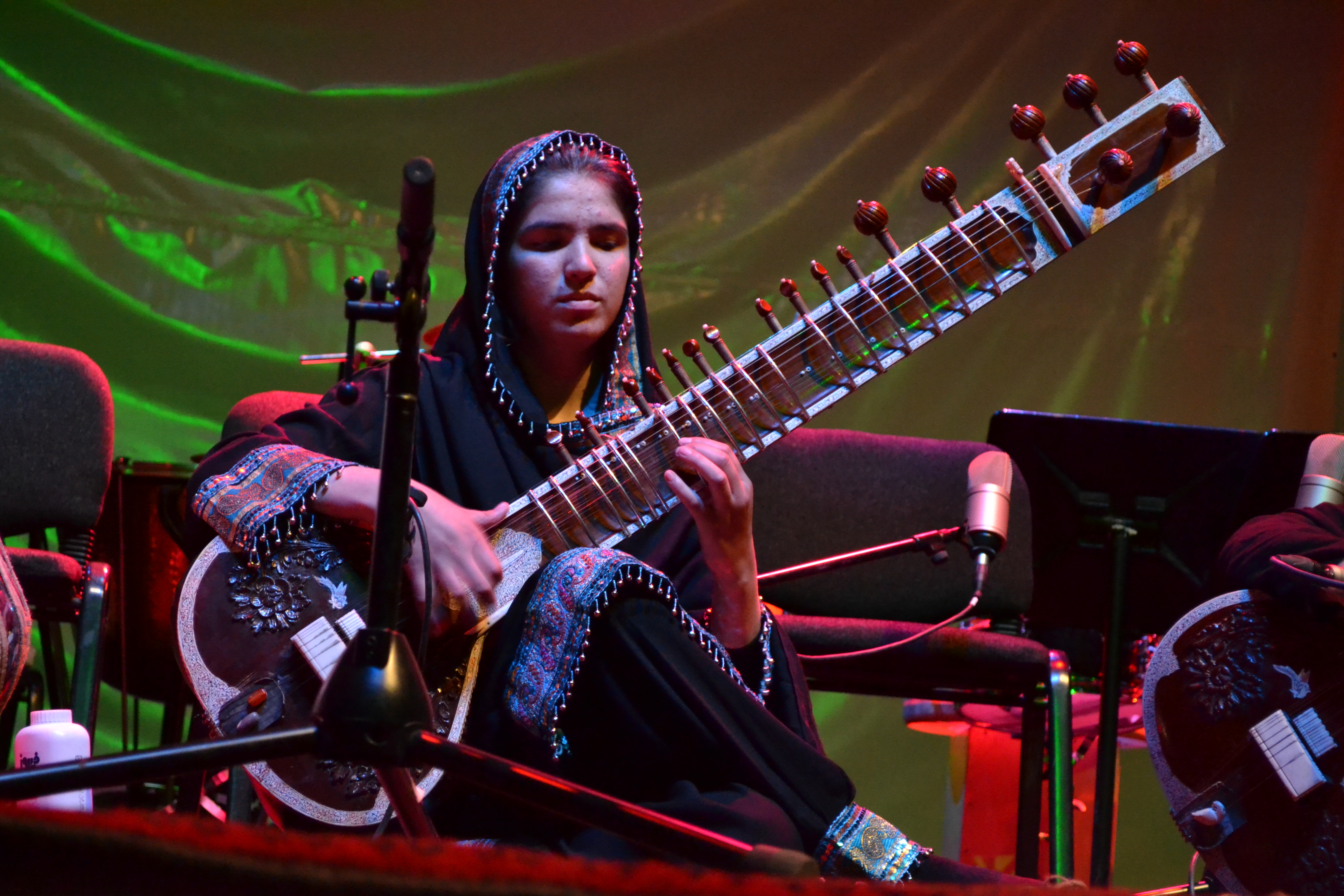Armanshahr Foundation, in cooperation with the French Institute in Afghanistan, organised the Human Rights Week at the Institute’s premises from 7-10 December 2014. During the week, human rights workshops were organised for civil society activists and students as well as round-table discussions and public debates, with human rights experts and civil society activists as panellists, where students and young people attended in large numbers. Diverse cultural programs with themes pertaining to human rights, peace and protecting human rights defenders were performed at the conclusion of each day’s activities.
Artistic exhibition: On 7 December, the first day of the week, an exhibition of paintings by men and women artists from Afghanistan and other countries was inaugurated in three parts: 1) winners of an international competition of posters concerned with human rights, freedom of expression, corruption and repression, which had previously been held in France. 2) Paintings of an anonymous woman, which indicated the conditions of women and the obstacles they are facing in the Afghan traditional and patriarchal society. 3) Posters created by collage technique in the educational workshop of French artist and instructor Margalit Berriet by students of School of Fine Arts, Kabul University, which illustrated poverty, deprivation, political chaos and war in Afghanistan and the quest for peace.
Film screening: On the second day, 8 December, three films were screened, which had been selected from among the films of the 2nd International Women’s Film Festival (IWFF)-Herat that Armanshahr Foundation and Roya Film House had jointly organised in November 2014, where more than 500 films from across the world were received and more than 10,000 people watched the films. The three films were:Darya’s Dream, winner of the first prize in the feature films category, the director of which Jalil Hussaini was also present;The broken destiny of poetry (director:Rahmatolla Heidari) andBeyond the Burqa (Sahra Mousavi), the joint winners of the first prize in the documentaries category of the Festival. After screening, the audience had a brief discussion with Jalil Hussaini.
Poets sing peace: A poetry reading session titled “Poets sing peace” was held on 9 December, the third day of the week, where more than 120 people, including poets, artists and art lovers from across Afghanistan and Kabul participated. More than 30 men and women poets recited their poems on such themes as justice, equality, freedom and peace.
Javid Nabizada:
The newscaster said last night: a woman … dot dot dot
Several people dot dot dot a poor woman
He said: They tied the man of the house and in front of him
They dot dot dot with her beautiful wife “Golshan”
Then Golshan, seen with mosaic blurry face, said:
“I wish they had killed me; they dot dot dot with me
“Death is better than life since last night
“Dishonour, pain, pregnancy, dot dot dot”
A day after, it seems there is nothing to say,
A day after they dot dot dot with a woman
They take a hot shower and…
This vein goes under a blade! And dot
Seda Soltani:
I am tired! I have had enough of barriers… I am tired of scarves for girls
Of always being a woman, underling and hireling of husbands
Then I must be a mother and let you be a hero
Then grow the hairs above your lip and you cause trouble for mothers…
I went along with all your wishes; I gave love to the Demon
I fell in love with the dirt, you and your hobby… These “sluts”
I’m tired of the university, the dirty environment of work
Or being called sister!!! I’m tired, tired of brothers
I’m tired of all the rituals, tired of forced belief
I’m tired of the one-way street, the traffic light, the police and the rangers
Taxi! Where to? Chartered… I’m tired of Mezar and its heat
I feel dizzy and sweat all the time, and the cars…
Put your glasses on, be blind and deaf! Hush… sister
These people are poor and sick, the black heads* know them well
Your poems flow, thanks to my body
Femaleness is not always beautiful; I’m tired of your presence, you males!!!!!
[* An epithet used by men in Afghanistan for women]
The poetry programme provided young poets of Afghanistan with an opportunity to sit together and whisper their poems together in a warm friendly atmosphere.
Peace concert and 3rd Simorgh International Peace Prize: In the grand final ceremony of the Human Rights Week, recipients of the 3rd Simorgh international Peace Prize were announced. In this edition of the prize, works of musicians from Afghanistan, Iran and Tajikistan were appreciated. The following artists were the recipients of the azure statute of Simorgh Peace Prize.
Afghanistan: “Youth Orchestra – Afghanistan National Institute of Music” for training a new generation of girls and boys and paying attention to music of Afghanistan and the world; “MsZarsanga” for a lifetime of artistic activities, keeping alive the voice of women in Afghanistan despite all the constraints, and her call to peace through music.
Iran: “Master Mohammad Reza Shajarian” for a lifetime of artistic activities and his persistent companionship of the people; and “Rastak Music Ensemble” for concentrating on the local music of ethnic communities and different languages in Iran, the strong presence of women within the ensemble and spreading happiness among the people.
Tajikistan: “Falak Centre” and its founder and director “Mr Davlatmand Khal” for establishing the Centre, endeavours to safeguard the Falak musical legacy, and consciously promoting the classical and modern literature through this musical genre; “Ms Golchehra Sadiqova”, mother of music in Tajikistan for a lifetime of artistic activities; and “Mr Daler Nazar” for cultural perseverance and endeavouring to keep alive the literary legacy through modern music as well as combine the pop and jazz music with Tajikistan’s national music.
The Great Master of literature and writer Rahnavard Zaryab, awarded the Simorgh Statute to Master Sarmast, director of the Youth Orchestra-Afghanistan National Institute of Music. Subsequently, members of the orchestra, boys and girls, performed several pieces individually as well as collectively. The girls who played the sitar and a young boy who masterfully played the violin brought great joy to the audience. Then a little boy, a composer, entered the stage and went on playing the Harmonium and singing. The programme culminated after the orchestra performed several collective pieces.

